Not every conflict occurs because a villain showed up to ruin everything. Sometimes, problems arise from well-meaning characters who can’t stop sabotaging themselves. Anime characters who get in their own way can be fascinating, as the true battle they fight occurs within their minds.
In some cases, the fallout from a character’s self-sabotage dominates the plot. Despite the title of the series, the protagonist of No Matter How I Look at It, It’s You Guys’ Fault I’m Not Popular! routinely lets her anxiety get in the way of forming meaningful relationships.
Other characters fight real battles, but still have to contend with their inner misery. Throughout Neon Genesis Evangelion, Shinji Ikari begrudgingly takes down Angels, but the show’s greatest conflict involves his self-perceived worthlessness. Regardless of the surface level issue, it’s often characters’ relatable inner strife that makes a series worth watching.
1. Katsuki Bakugo — ‘My Hero Academia’
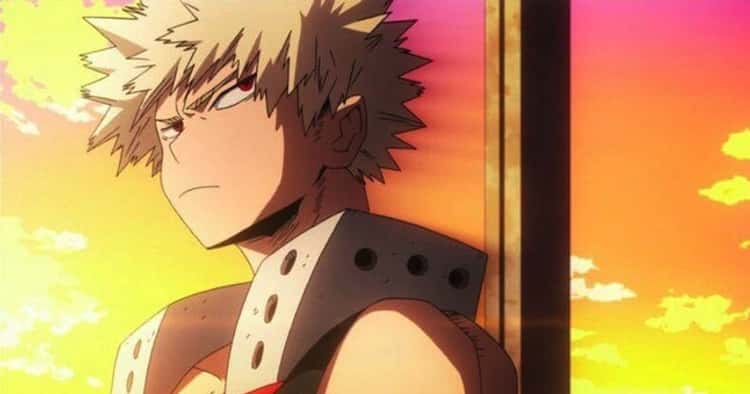
Being a hero involves more than just superpowers; if you don’t have the charisma to match, you won’t get far. Katsuki Bakugo is amazingly strong, but his sour attitude makes his dream of becoming a pro hero exceedingly difficult.
Bakugo interprets kindness as condescension, and rejects people who genuinely want the best for him. He ignores his teachers’ criticism and praise with equal disregard, which makes it difficult for him to learn from his mistakes.
To further complicate matters, Bakugo routinely becomes enraged in public. This tarnishes his reputation, and makes him a target for coercive villains who want to capitalize on his anger. While Bakugo’s heart is in the right place, his demeanor is totally at odds with his ambition.
2. Sasuke Uchiha — ‘Naruto’
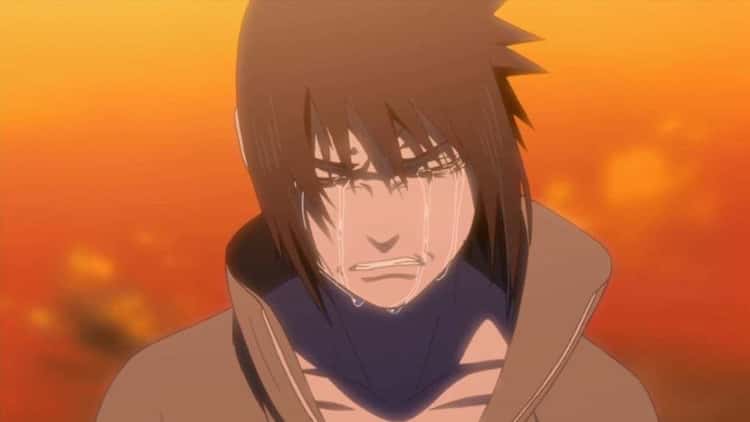
Sasuke Uchiha wants desperately to have a family, but he sabotages his desire at every turn.
For a large chunk of the series, Sasuke swears revenge on his brother Itachi, who murdered their family when Sasuke was eight. Despite his poise, Sasuke never considers why his sibling committed such an atrocity. By the time he realizes the Konoha government forced his brother’s hand, he’s already killed Itachi, making Sasuke the sole surviving member of the Uchiha clan.
With his brother gone, Sasuke transfers his rage onto his city’s government, but his efforts are fruitless, as the man who condemned his family was part of a splinter group that no longer exists. When his rage subsides, he spends the remainder of his life buried in ninja work, and completely ignores his daughter.
Sasuke never achieves the revenge he longed for, and nothing can truly absolve his pain, as he repeatedly makes choices that run counter to his happiness.
3. Shinji Ikari — ‘Neon Genesis Evangelion’
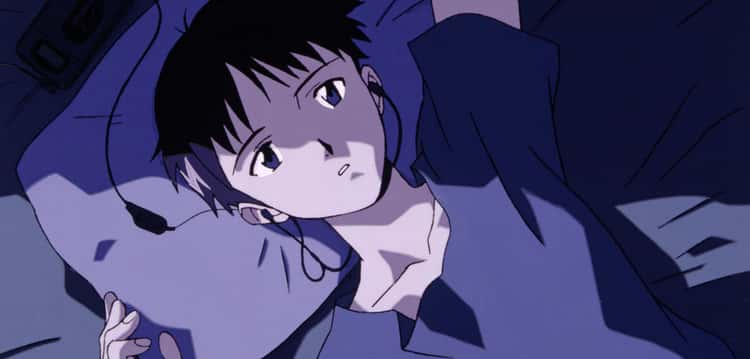
While the sudden appearance of Angels (or alien monsters capable of wiping out the human race) is a big deal, the greatest conflict in Neon Genesis Evangelion occurs inside the protagonists head.
Shinji Ikari’s parents were never there for him. His mother died 11 years before the start of the series, and his cruelly withdrawn father focuses on work, and never acknowledges his son’s feelings. This isolation takes a toll on Shinji, and by the time he’s 14, he’s fully disillusioned with the world.
Even when Shinji is chosen to lead the fight against the Angels by piloting an Eva, he’s still convinced his life is worthless. His persistently negative self-image leads him to hesitate at crucial moments, and push away anyone who attempts to get close to him.
By the end of the series, humanity is well on its way to becoming a single conscious entity, yet the final moments of the show are devoted to Shinji’s recognition of his inherent value as a person.
4. Yuuri Katsuki — ‘Yuri!!! On ICE’
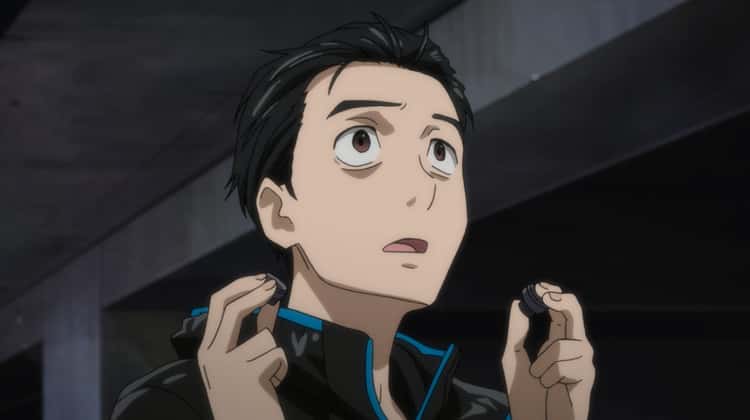
Raw skating talent doesn’t mean much if you’re too depressed to practice. After suffering a crushing defeat, Yuuri Katsuki is so distraught that he almost retires from skating. He eventually regains a feeling of self-worth, but to do so, he needs a lot of help from Victor Nikiforov, his former idol who becomes his skating coach and fiance.
Following his emotional recovery, Yuuri takes second place in the Grand Prix, which he considers a smashing success. To get back on the rink, he had to overcome his insecurities, so beating other skaters isn’t that important by comparison.
5. Tomoko Kuroki — ‘No Matter How I Look At It, It’s You Guys’ Fault I’m Unpopular!’
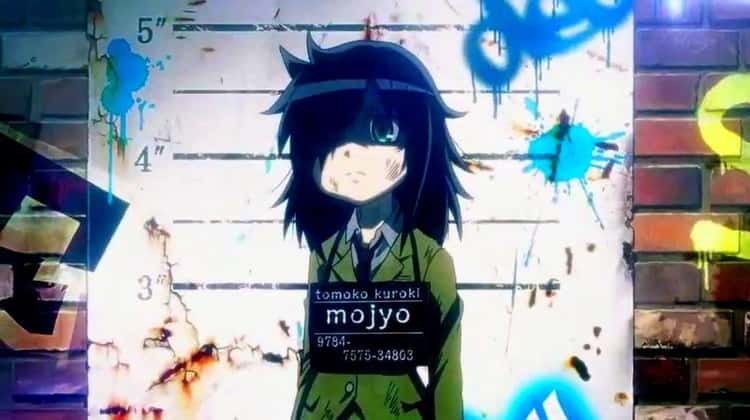
Tomoko Kuroki wants to be popular more than anything in the world. Unfortunately, the socially anxious teen gleans social skills from shady internet forums and erotic dating sims, so her goal is always painfully out of reach.
Instead of engaging with her classmates, Tomoko goes to school hoping people will notice her “shiny” (read: sweaty) hair, and fall in love with her for it.
While Tomoko could certainly benefit from a better mentor, she needs to focus less on abstract popularity, and more on finding friends she can relate to.
6. Teru Mikami — ‘Death Note’
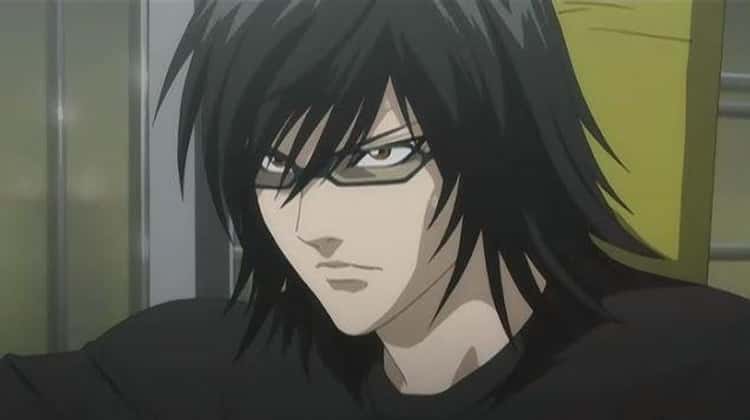
Harboring a passion for justice isn’t inherently bad, but Teru Mikami’s fanatical obsession makes his whole life difficult.
As a child, Mikami attempted to curtail the rampant bullying that occurred in his classroom. Unfortunately, this made him a target, and he was forcibly stripped naked, tied to a tree, and beaten, among other indecencies.
After his mother is killed in an accident, a middle school-aged Mikami decides that she deserved to die, since she had committed misdeeds in the past. His obsession with justice causes him to forgo properly mourning her.
As an adult, Mikami’s rigid personality makes him easy prey for Light Yagami, who recruits him to help kill criminals. Mikami worships Light as a god, and is ultimately betrayed for his faith. Had his thinking been a little more moderate, he would likely have suffered less.
7. Seishuu Handa — ‘Barakamon’
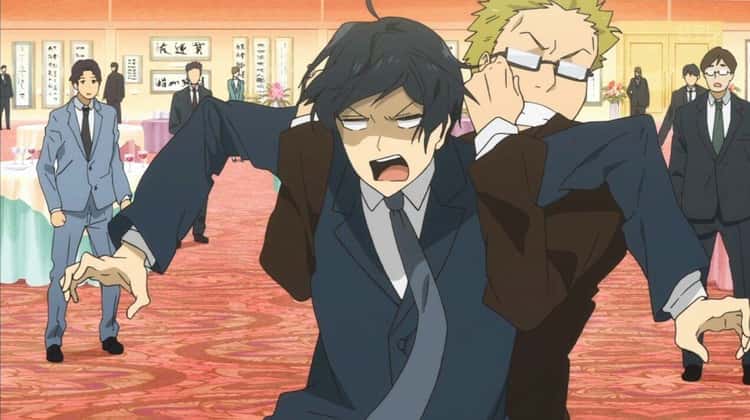
In response to Handa’s rash actions, his father sends him away from their Tokyo home to live on the Gotō Islands. Once there, he slowly starts practicing life skills he’s been severely lacking, such as basic cooking and cleaning.
While Handa’s calligraphy is top-notch, he has a lot to learn about adulting, and his emotional immaturity often exacerbates otherwise banal issues. The conflict at the heart of the story is Handa’s journey to overcome his negative tendencies and become a calmer, happier person.
8. Hachiman Hikigaya — ‘My Teen Romantic Comedy SNAFU’
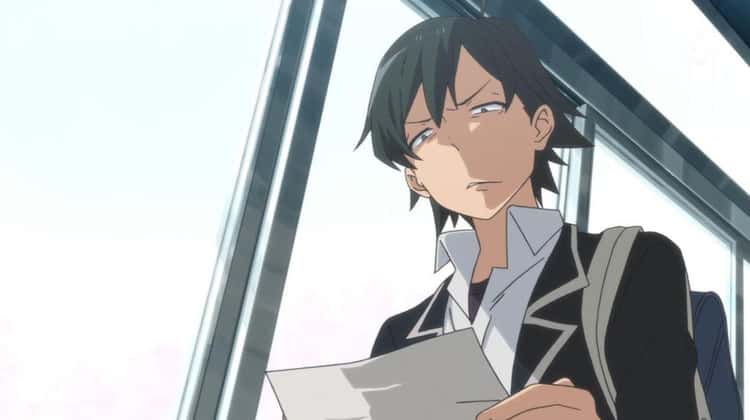
Whenever people try to get close to Hachiman Hikigaya, he pushes them away with sarcasm and a sour expression. Despite his sullen demeanor, Hikigaya secretly wants to connect with others, and cares deeply about their well-being.
Somehow, Hikagaya’s heart of gold pushes him to constantly sabotage his chances at happiness. Since he values public harmony, he often deliberately manipulates social situations so he appears to be the bad guy, allowing everyone else to stay friends.
According to Hikagaya, an ideal resolution is one where he’s miserable, but everyone else is happy. His friends don’t want to see him get hurt, and try to persuade him to stop, but Hikigaya’s self-loathing isn’t easy to overcome.
9. Tatsuhiro Satou — ‘Welcome To The NHK’
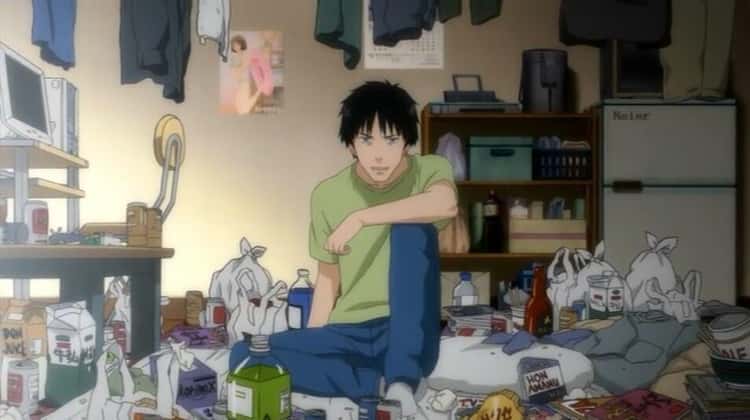
Tatsuhiro Satou is a 22-year-old hikkikomori who rarely leaves his house, and spends most of his time playing video games, watching anime, and looking at sexy pictures.
Since he doesn’t work or go to school, he’s running out of money, and the possibility of homelessness looms menacingly overhead. He has few satisfying personal relationships, and he’s losing his grip on reality.
Satou’s problem isn’t caused by an outside force, though he does blame the NHK (a Japanese broadcasting corporation) for allegedly brainwashing him. His biggest issues are born in his mind, so until he gets his thoughts under control, he’s unable to break the cycle of hopelessness.
